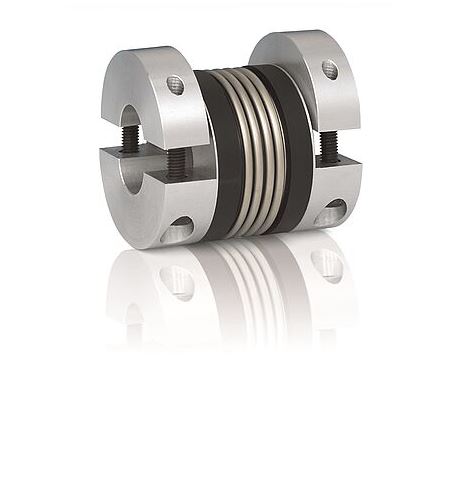Product Description
Product Description
|
Product name |
Chain coupling |
|||
|
Material |
Carbon steel material |
|||
|
Structure |
Roller chain+sprocket+cover |
|||
|
Size |
KC3012, KC4012, KC4014, KC4016, KC5014, KC5016, KC5018, KC6018, KC6571, KC6571, KC8018, KC8571, KC8571, KC1571, KC12018, KC12571, KC16018, KC16571, KC20018, KC20571, KC24026 |
|||
|
Other type |
Flexible coupling |
|||
|
Application |
Shaft transmission |
|||
|
Feature |
High performance, light weight, convenient assembly |
|||
Packaging & Shipping
Company Profile
ZheJiang Haorongshengye Electrical Equipment Co., Ltd.
1. Was founded in 2008
2. Our Principle:
“Credibility Supremacy, and Customer First”
3. Our Promise:
“High quality products, and Excellent Service”
4. Our Value:
“Being Honesty, Doing the Best, and Long-lasting Development”
5. Our Aim:
“Develop to be a leader in the power transmission parts industry in the world”
|
6.Our services: |
1).Competitive price |
|||
|
2).High quality products |
||||
|
3).OEM service or can customized according to your drawings |
||||
|
4).Reply your inquiry in 24 hours |
||||
|
5).Professional technical team 24 hours online service |
||||
|
6).Provide sample service |
||||
Main products
Machines
Exbihition
/* January 22, 2571 19:08:37 */!function(){function s(e,r){var a,o={};try{e&&e.split(“,”).forEach(function(e,t){e&&(a=e.match(/(.*?):(.*)$/))&&1

Are there Specific Temperature and Torque Limits for Different Bellows Coupling Materials?
Bellows couplings are available in a variety of materials, each with its own temperature and torque limits. The choice of material depends on the specific application requirements, including environmental conditions, operating temperatures, and torque demands. Here are some commonly used bellows coupling materials and their respective temperature and torque limits:
- Stainless Steel: Stainless steel bellows couplings are widely used due to their excellent corrosion resistance and high strength. They can operate in a wide temperature range, typically from -40°C to 400°C (-40°F to 752°F). The torque limits for stainless steel bellows couplings vary based on their size and construction but can range from a few Nm to several hundred Nm.
- Aluminum: Aluminum bellows couplings are lightweight and offer good corrosion resistance. They are suitable for applications with lower torque requirements. The temperature limits for aluminum couplings range from -30°C to 150°C (-22°F to 302°F), and the torque limits generally range from a few Nm to around 50 Nm.
- Brass: Brass bellows couplings are known for their electrical conductivity and are often used in applications where electrical isolation is required. They have temperature limits similar to aluminum couplings, ranging from -30°C to 150°C (-22°F to 302°F), and torque limits comparable to aluminum couplings.
- Titanium: Titanium bellows couplings offer exceptional strength and corrosion resistance, making them suitable for demanding applications. They can operate in a temperature range of -50°C to 300°C (-58°F to 572°F), and their torque limits range from a few Nm to several hundred Nm.
- Inconel: Inconel is a high-temperature alloy that provides excellent performance in extreme heat and corrosive environments. Inconel bellows couplings can operate in temperatures from -60°C to 600°C (-76°F to 1112°F) and have high torque capacities, ranging from a few Nm to over a thousand Nm.
- Plastics: Certain plastic materials, such as PEEK (Polyether Ether Ketone), are used for bellows couplings in specialized applications. Plastic couplings offer lower torque capacities compared to metal couplings but can operate in a temperature range of -30°C to 250°C (-22°F to 482°F).
It is essential to consult the manufacturer’s specifications and guidelines to select the appropriate bellows coupling material for your specific application. Choosing the right material ensures that the coupling can withstand the operating conditions and delivers reliable performance throughout its service life.

Can Bellows Couplings be Customized or Adapted to Specific Industrial Needs?
Yes, bellows couplings can be customized or adapted to meet specific industrial needs. Manufacturers of bellows couplings often offer a range of customization options to ensure that the couplings can effectively address the unique requirements of different applications and industries.
The customization options for bellows couplings may include:
- Material Selection: Manufacturers can offer a variety of materials for the bellows coupling based on factors such as corrosion resistance, temperature tolerance, and mechanical properties. Different materials, such as stainless steel, aluminum, or specialized alloys, can be chosen to suit the specific demands of the application.
- Size and Dimensions: Bellows couplings can be produced in various sizes and dimensions to accommodate different shaft diameters and spacing requirements. Custom sizing ensures a proper fit and optimal performance in the given system.
- Design Modifications: Manufacturers can make design modifications to the bellows coupling to suit specific environmental conditions or to address unique challenges in a particular application. These modifications may include changes to the shape of the bellows, the number of convolutions, or the addition of protective features.
- Electrical Isolation: For applications requiring electrical isolation between shafts, bellows couplings can be customized with insulating materials to prevent the flow of electric currents between the connected components.
- Performance Enhancements: Couplings can be designed to provide enhanced performance characteristics, such as higher torque capacity or improved torsional stiffness, based on the requirements of the application.
By collaborating with coupling manufacturers or consulting with engineering experts, industrial users can outline their specific needs and constraints. This information helps in the customization or adaptation of bellows couplings to create a solution that optimally meets the demands of the intended application.
It is important to work closely with reputable coupling suppliers or manufacturers who have experience in providing customized solutions. Such collaboration ensures that the final bellows coupling design aligns with the intended industrial needs and delivers reliable and efficient performance in the designated application.

How do you Select the Right Bellows Coupling for Specific Motion Control Systems?
Selecting the right bellows coupling for a motion control system involves considering several key factors to ensure optimal performance and reliability. Here are the steps to help you make an informed decision:
- Application Requirements: Understand the specific requirements of your motion control system. Consider factors such as torque capacity, speed, angular misalignment, axial motion, and environmental conditions.
- Type of Bellows Coupling: Determine the type of bellows coupling that best suits your application. Choose from single bellows, double bellows, flexible beam with bellows, torsionally rigid, miniature, or high-temperature bellows coupling, depending on your needs.
- Torsional Stiffness: If your application requires high torsional stiffness to maintain precise motion control, consider bellows couplings with torsionally rigid designs.
- Misalignment Compensation: Evaluate the amount of misalignment your system may encounter and choose a bellows coupling with the appropriate misalignment compensation capabilities.
- Torque and Speed Ratings: Check the torque and speed ratings of the coupling to ensure they meet or exceed the requirements of your motion control system.
- Space Constraints: Consider the available space for the coupling. For applications with limited space, miniature or compact bellows couplings may be suitable.
- Environmental Conditions: If your application involves extreme temperatures or corrosive environments, opt for a high-temperature or corrosion-resistant bellows coupling material.
- Customization: Some applications may require customized solutions. In such cases, consult with coupling manufacturers to explore the possibility of tailored designs.
- Consult with Experts: When in doubt, seek advice from coupling manufacturers or engineering experts who can offer valuable insights and recommendations based on your specific application needs.
By carefully considering these factors, you can select the right bellows coupling that aligns with your motion control system’s requirements and ensures smooth and efficient power transmission. Additionally, choosing high-quality and reputable coupling suppliers will contribute to the overall success and reliability of your motion control application.


editor by CX 2024-04-17
